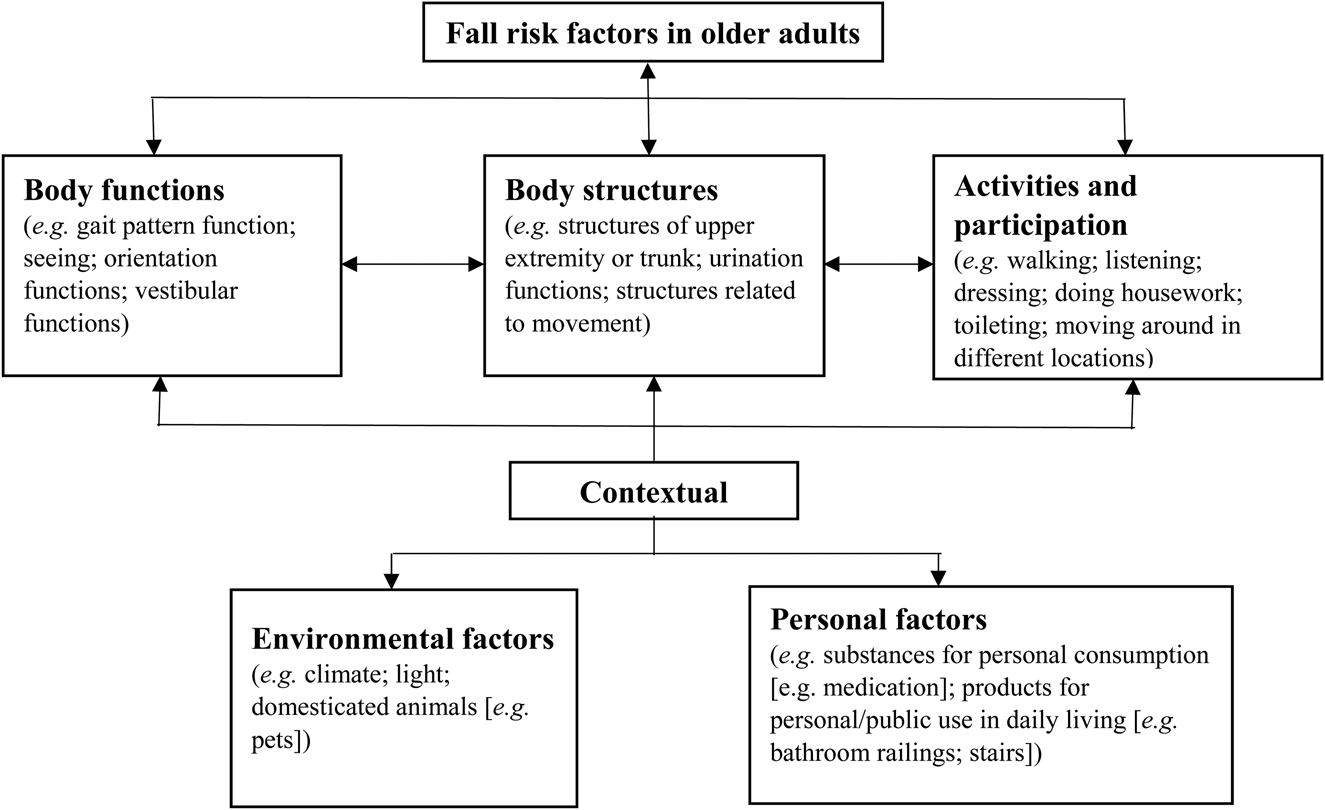The 8-Second Trick For Dementia Fall Risk
The 8-Second Trick For Dementia Fall Risk
Blog Article
Not known Facts About Dementia Fall Risk
Table of ContentsThe 20-Second Trick For Dementia Fall RiskDementia Fall Risk for BeginnersThe Ultimate Guide To Dementia Fall RiskHow Dementia Fall Risk can Save You Time, Stress, and Money.
An autumn threat evaluation checks to see just how most likely it is that you will fall. It is mainly provided for older adults. The evaluation generally consists of: This includes a collection of inquiries regarding your total health and if you've had previous drops or problems with balance, standing, and/or walking. These tools examine your strength, balance, and stride (the way you walk).Interventions are recommendations that might lower your threat of dropping. STEADI includes three actions: you for your threat of falling for your risk factors that can be improved to attempt to avoid falls (for example, equilibrium problems, damaged vision) to reduce your threat of falling by using reliable methods (for example, giving education and learning and resources), you may be asked numerous questions including: Have you dropped in the previous year? Are you fretted about dropping?
You'll rest down again. Your provider will check the length of time it takes you to do this. If it takes you 12 seconds or more, it may suggest you are at greater danger for a fall. This examination checks strength and equilibrium. You'll being in a chair with your arms went across over your chest.
Relocate one foot midway onward, so the instep is touching the huge toe of your various other foot. Relocate one foot fully in front of the various other, so the toes are touching the heel of your various other foot.
Some Known Questions About Dementia Fall Risk.
The majority of drops happen as a result of multiple adding aspects; consequently, taking care of the risk of dropping starts with determining the variables that add to drop danger - Dementia Fall Risk. A few of the most pertinent danger elements include: Background of previous fallsChronic clinical conditionsAcute illnessImpaired gait and equilibrium, reduced extremity weaknessCognitive impairmentChanges in visionCertain risky medicines and polypharmacyEnvironmental elements can also increase the threat for falls, consisting of: Inadequate lightingUneven or harmed flooringWet or slippery floorsMissing or harmed handrails and grab barsDamaged or poorly equipped devices, such as beds, wheelchairs, or walkersImproper use assistive devicesInadequate guidance of individuals living in the NF, consisting of those that display aggressive behaviorsA effective fall risk monitoring program needs a complete scientific assessment, with input from all participants of the interdisciplinary team

The care strategy need to also consist of treatments that are system-based, such as those that promote a safe setting (appropriate lights, handrails, order bars, and so on). The performance of the interventions must be assessed regularly, and the treatment plan changed as essential to show adjustments in the autumn danger analysis. Executing a loss danger management system utilizing evidence-based ideal technique can decrease the occurrence of drops in the NF, while restricting the potential for fall-related injuries.
The 9-Second Trick For Dementia Fall Risk
The AGS/BGS guideline advises evaluating all grownups aged 65 years and older for autumn danger each year. This screening includes asking people whether they have actually fallen 2 or more times in the past year or sought medical focus for a fall, or, if they have not dropped, whether they feel unsteady when walking.
People that have actually dropped as soon as without injury ought to have their balance and gait evaluated; those with gait or equilibrium problems need to get additional evaluation. A background of 1 autumn without injury and without gait or balance troubles does not warrant further analysis beyond continued annual loss risk screening. Dementia Fall Risk. A fall threat assessment is required as component of the Welcome to website here Medicare exam

Dementia Fall Risk Can Be Fun For Everyone
Documenting a drops background is among the top quality signs for autumn prevention and administration. A vital part of danger assessment is a medicine review. Numerous courses of medicines enhance autumn risk (Table 2). copyright medicines particularly are independent predictors try this site of drops. These medications often tend to be sedating, alter the sensorium, and hinder equilibrium and stride.
Postural hypotension can often be eased by reducing the dosage of blood pressurelowering drugs and/or stopping medications that have orthostatic hypotension as a negative effects. Use above-the-knee support pipe and resting with the head of the bed elevated may additionally reduce postural reductions in blood stress. The recommended elements of a fall-focused checkup are received Box 1.

A TUG time better than or equal to 12 seconds suggests high loss danger. Being not able to stand up from a chair of knee elevation without making use of one's arms suggests enhanced loss danger.
Report this page